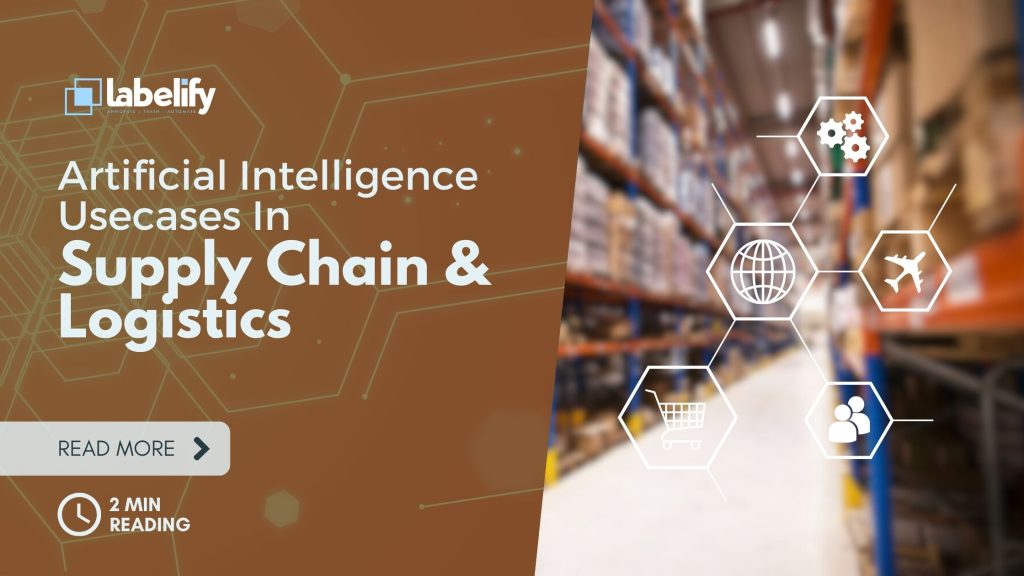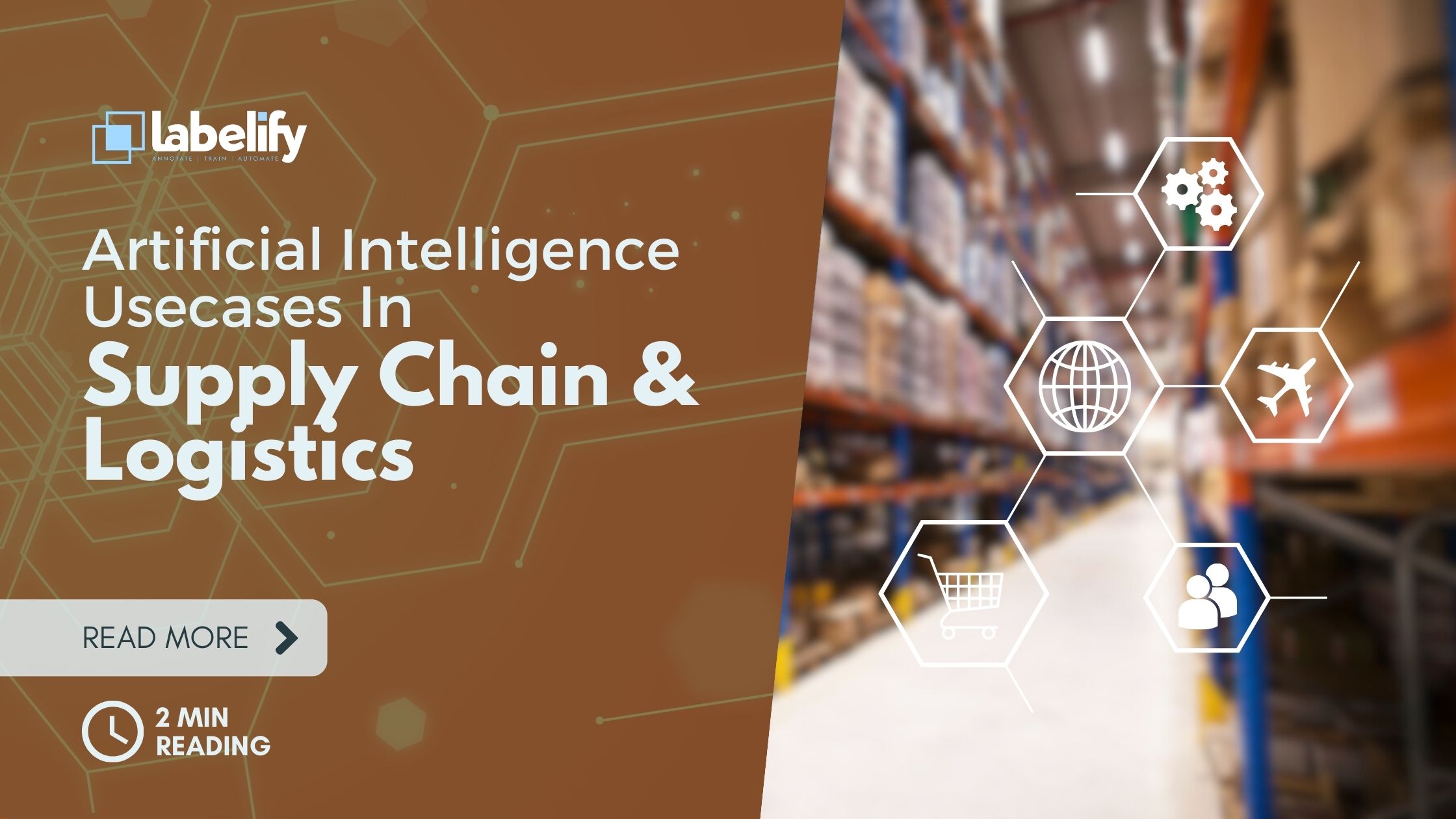
Artificial Intelligence Usecases in Supply Chain & Logistics are about to take you on an exciting journey into the world of AI in supply chain and logistics. We rely on the seamless movement of goods to meet our needs. But traditional processes face challenges like human error and inefficiencies.
That’s where AI steps in, revolutionizing the industry with its ability to optimize operations and enhance efficiency. From driverless trucks to warehouse automation, AI is transforming every aspect of the supply chain.
Get ready to explore the twenty practical applications that are shaping the future of this industry.
Temel Çıkarımlar
The integration of AI in supply chain and logistics propels the industry into a new era of efficiency and productivity. With AI, businesses can streamline operations, reduce costs, and enhance customer satisfaction through autonomous vehicles, optimized warehouses, and advanced monitoring systems.
AI revolutionizes the industry by detecting defects, improving security, and streamlining document processing. These practical applications of AI pave the way for an even more innovative and visionary future in supply chain and logistics.
Autonomous Vehicles in Transportation Artificial Intelligence Usecases in Supply Chain & Logistics
Autonomous vehicles revolutionize transportation by eliminating the need for human drivers. This innovation in driverless trucking not only brings a futuristic vision of liberation but also holds great potential for improving road safety.
With autonomous vehicles at the helm, we can finally say goodbye to human error on the roads, paving the way for a safer and more efficient transportation system. These driverless trucks, guided by advanced AI technologies, have the ability to analyze real-time data, make split-second decisions, and navigate through traffic with precision.
By removing the element of human fallibility, autonomous vehicles offer a promising solution to reducing accidents, minimizing traffic congestion, and ultimately creating a world where transportation is both reliable and secure.
The era of driverless trucking is upon us, and with it comes a bright future of enhanced road safety Artificial Intelligence Usecases in Supply Chain & Logistics.
Optimization and Automation in Warehouses
We optimize and automate warehouses to improve efficiency and productivity. By incorporating AI in inventory management and order fulfillment, we revolutionize how warehouses function.
AI algorithms and technologies streamline product localization and identification, reducing inventory shrinkage and alerting staff when shelves need restocking. Automation systems can automate product counting and provide real-time product availability on websites, ensuring a smooth customer experience and preventing material shortages.
Implementing warehouse automation not only reduces labor-intensive tasks but also boosts productivity significantly, leading to long-term cost savings for businesses. With the expected increase in AI technology usage in warehouses, we’re at the forefront of a warehouse revolution that will free businesses from manual processes and elevate their supply chain operations to new levels of efficiency and effectiveness.
Shipment Load Monitoring and Optimization
Our aim is to optimize shipment load and monitoring for increased efficiency and cost savings. With AI’s assistance, we can revolutionize how we manage and monitor the loading process.
By using predictive analytics for vehicle maintenance, we can proactively schedule maintenance tasks, ensuring our vehicles are always in top condition, minimizing breakdowns, and reducing downtime.
AI also enables real-time product availability in warehouses, accurately tracking inventory levels and preventing material shortages. This not only improves customer satisfaction but also streamlines the supply chain by ensuring products are always available when needed.
With AI-powered shipment load monitoring and optimization, we can achieve a new level of efficiency and cost savings, freeing ourselves from inefficiencies and maximizing our potential for success.
Defect Inspection and Quality Control
Defect inspection and quality control play a crucial role in ensuring the highest standards of product quality and customer satisfaction in the supply chain and logistics industry. In the future, advanced technologies like computer vision will revolutionize defect inspection processes, allowing for automated quality control.
Here are four exciting advancements that will enhance quality control in the industry:
- Computer vision for defect detection: Cutting-edge computer vision technology will enable AI systems to accurately identify and classify defects in products, ensuring that only the highest quality items reach customers.
- Real-time anomaly detection: AI algorithms will analyze large amounts of data in real-time, detecting patterns and anomalies that may indicate potential defects and enabling immediate corrective actions.
- Reduced human errors: By automating quality control processes, AI will significantly reduce human errors, enhancing efficiency and eliminating inconsistencies in product inspection.
- Enhanced customer satisfaction: With automated defect inspection, businesses can ensure consistent product quality, leading to increased customer satisfaction and loyalty.
The future of defect inspection and quality control looks promising, with AI and computer vision technologies driving innovation and revolutionizing the supply chain and logistics industry.
Security and Efficiency Enhancements
Now let’s talk about security and efficiency enhancements.
One important aspect to consider is implementing advanced surveillance systems in supply chain and logistics operations. These systems incorporate computer vision technology and deep learning models, allowing for accurate location detection and guidance for truck drivers at docks and parking lots. They can detect trucks of all shapes and sizes in real-time, regardless of weather conditions.
Furthermore, AI plays a key role in preventing intrusion and theft by monitoring security cameras and using advanced algorithms for object recognition. This improves monitoring efficiency and enhances warehousing operations, acting as a practical deterrent against crime.
Moreover, automatic license plate recognition technology, combined with object tracking and facial recognition, provides a smart infrastructure system for detecting unauthorized vehicles. By incorporating video analytics, we can identify the movements of vehicles and people, and enhance access control systems.
Sıkça Sorulan Sorular
What Are the Potential Risks and Challenges Associated With Implementing Autonomous Vehicles in Transportation and Logistics?
Implementing autonomous vehicles in transportation and logistics presents potential risks and challenges. Risks include cybersecurity threats, technical malfunctions, and legal and regulatory issues.
Challenges involve the need for extensive infrastructure upgrades, training and re-skilling of the workforce, and public acceptance.
However, the benefits of autonomous vehicles, such as increased efficiency, reduced costs, and improved safety, outweigh these challenges.
With careful implementation, autonomous vehicles have the potential to revolutionize the supply chain and logistics industry, leading to a more sustainable and streamlined future.
How Can AI Technologies Help Improve the Accuracy and Efficiency of Warehouse Inventory Management?
AI technologies revolutionize warehouse inventory management by improving accuracy and efficiency.
AI-powered demand forecasting optimizes inventory levels, ensuring no shortages or excesses.
Predictive maintenance enabled by AI schedules tasks based on real-time data, reducing downtime and maximizing operational efficiency.
These advancements minimize costs, streamline processes, and meet customer demands with precision.
The liberation brought by AI in warehouse inventory management offers a glimpse into the future of efficient and accurate supply chain operations.
What Are Some Examples of AI Use Cases in Optimizing Shipment Load and Monitoring?
AI optimizes shipment load and monitoring through route optimization and real-time shipment tracking.
By using AI algorithms and real-time data, we can maximize space usage, reduce transportation costs, and ensure compliance with weight regulations.
AI analyzes historical data to predict the best distribution of loads, preventing overload and minimizing the risk of damage to goods.
These AI applications transform supply chain visibility, enhance efficiency, and pave the way for a liberated and efficient logistics industry.
How Can AI Algorithms Detect and Identify Defects in Products During the Quality Control Process?
AI algorithms revolutionize the manufacturing industry by detecting and identifying defects in products. By using computer vision technology and analyzing large amounts of data, AI can accurately detect and identify defects.
This enables automated quality control processes, reducing human errors and improving efficiency. With AI, businesses can ensure consistent product quality and customer satisfaction, paving the way for a future where defects are eliminated.
What Are the Potential Security Vulnerabilities That AI Systems May Face in Supply ChAIn and Logistics, and How Can They Be Addressed?
AI systems in supply chain and logistics face potential security vulnerabilities, including data breaches, malicious attacks, and algorithm biases.
To address these issues, we must implement robust cybersecurity measures like encryption and authentication protocols. Regular system audits and updates are crucial to stay ahead of emerging threats.
Ethical considerations are equally important, ensuring transparency and fairness in AI decision-making processes.
Continuous monitoring and collaboration between AI experts and industry professionals can help mitigate risks and build a secure and responsible AI-powered supply chain ecosystem.
Çözüm
The integration of AI in supply chain and logistics propels the industry into a new era of efficiency and productivity. With autonomous vehicles, optimized warehouses, and advanced monitoring systems, businesses can streamline operations, reduce costs, and enhance customer satisfaction.
AI’s ability to detect defects, improve security, and streamline document processing revolutionizes the industry.
As we embrace these practical applications of AI, the future of supply chain and logistics becomes even more innovative and visionary.




